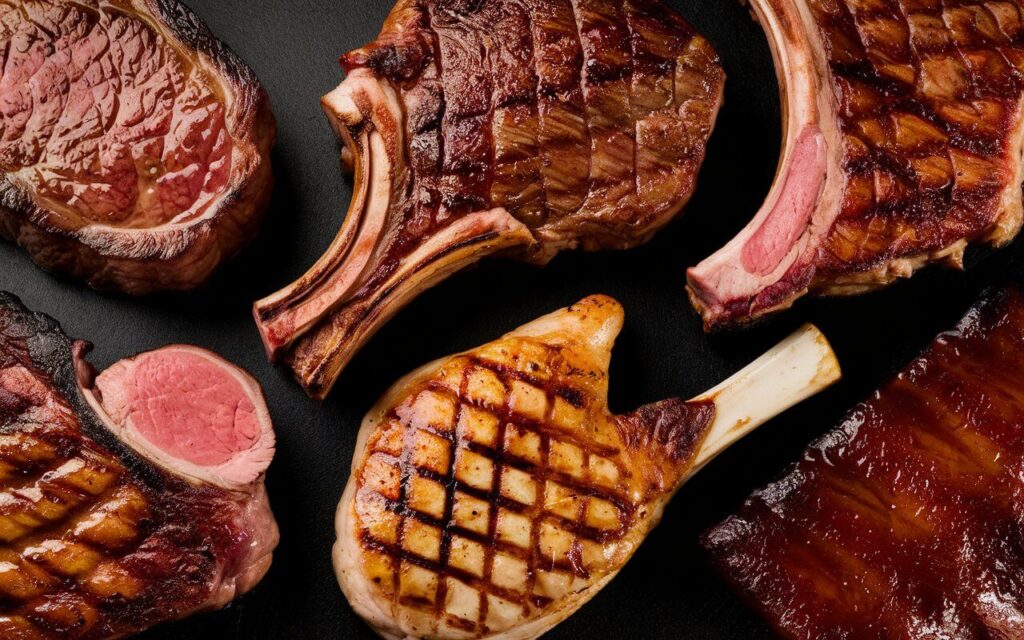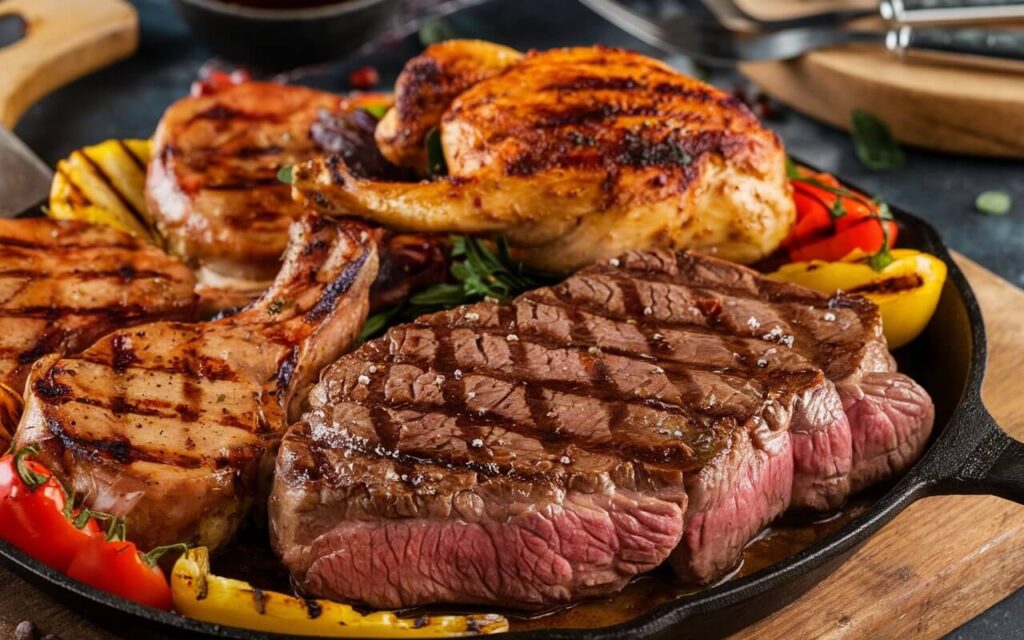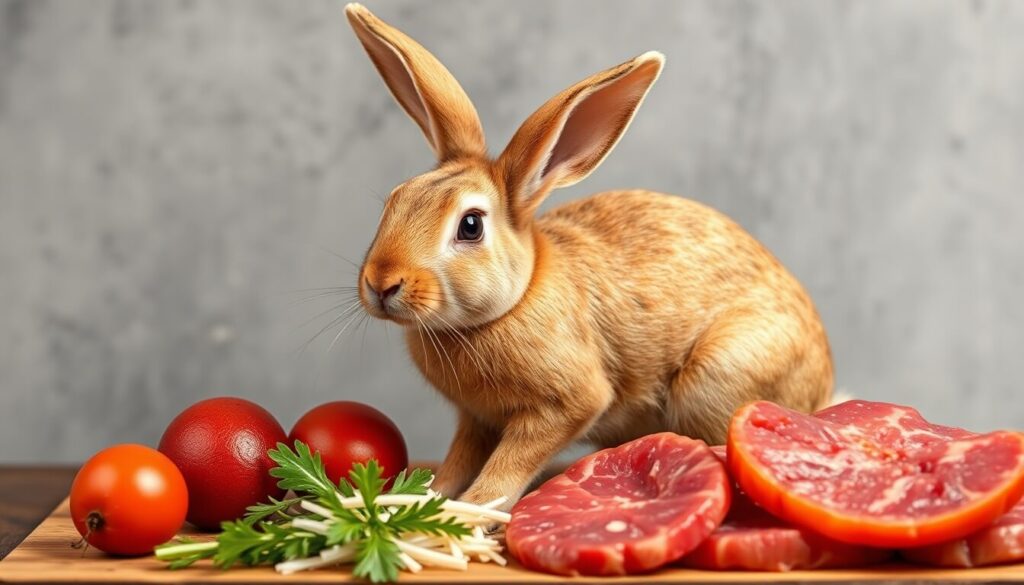Rabbit meat is a mystery to many, but it’s enjoyed as a delicacy in various parts of the world. If you’ve ever wondered, “What does rabbit taste like?” you’re not alone. With its rise as a sustainable and healthy meat alternative, people are curious about how rabbit compares to familiar meats like chicken or beef. Let’s dive into its unique taste, texture, and benefits to your diet.
Nutritional Value of Rabbit Meat
Rabbit meat is known for being lean, high in protein, and low in fat, making it a top choice for the health-conscious.
How Healthy Is Rabbit Meat?
According to the USDA, a 3-ounce serving of cooked rabbit contains about 147 calories, 28 grams of protein, and only 3 grams of fat. This makes rabbits an excellent source of lean protein. It’s also rich in B vitamins, iron, and selenium, which support various metabolic functions and immune health.
Protein Content in Rabbit
Rabbit is a “complete protein,” providing all the essential amino acids your body needs. It’s a fantastic option for athletes, bodybuilders, or anyone seeking to maintain muscle mass while consuming fewer calories.
Low Fat, High Nutritional Value
With only 3 grams of fat per serving, rabbit meat offers an excellent alternative for those on low-fat diets. Its high protein and low-calorie profile make it suitable for weight loss and general fitness plans.
Texture of Rabbit Meat
Rabbit meat has a tender, juicy texture, especially when cooked properly. It isn’t as fibrous as beef but is leaner than chicken.
Comparison with Chicken
While rabbit is often compared to chicken, it has a firmer texture. The mild flavor of farmed rabbit is more subtle, making it a versatile base for various dishes.
Flavor Profile of Rabbit Meat
Many describe rabbits as tasting similar to chicken but with a richer, earthier undertone.
Is Rabbit Gamey?
Wild rabbits can have a stronger, more gamey flavor, but farmed rabbit tends to be mild and more accessible to a broader palate. According to Chef Gordon Ramsay, wild rabbits have a deeper, more complex taste that’s enhanced with slow-cooking techniques.
How Does Wild vs. Farmed Rabbit Taste?
The taste of wild rabbit is generally stronger, with a more pronounced gamey flavor due to the animal’s varied diet. Farmed rabbits, on the other hand, have a subtler, more neutral taste that’s closer to chicken.
Cooking Methods That Impact Taste
How rabbit is cooked plays a huge role in how it tastes. Different cooking methods can either enhance or diminish its natural flavors.
Roasting Rabbit
Roasting rabbit can give it a beautifully crispy exterior while keeping the meat tender inside. This method enhances its natural flavors and is often compared to roasted chicken.
Slow-Cooking Rabbit for Tenderness
Slow cooking is a popular method for preparing rabbits, especially wild rabbits. It breaks down tougher fibers, resulting in tender, juicy meat that’s packed with flavor.
Grilling and Barbecuing Rabbit
Grilling rabbit adds a smoky flavor and is a great way to enjoy it during warmer months. Marinating the meat beforehand can also help keep it juicy.
Diets That Enhance the Flavor of Rabbit Meat
What a rabbit eats before it’s farmed can have a significant impact on the taste of its meat. Much like other livestock, a rabbit’s diet can affect its flavor profile.
What Do Rabbits Eat Before Being Farmed?
Farmed rabbits are typically fed a diet rich in grains, hay, and vegetables. Some may also receive additional supplements for enhanced nutrition. This diet helps maintain the mild flavor of farmed rabbit meat.
Vagies for Rabbits
- Cucumbers: With their high water content, cucumbers offer a hydrating and refreshing snack for your rabbit.
- Carrots: Rabbits adore carrots, but due to their sugar content, they should be offered sparingly as an occasional treat.
- Cabbage: Cabbage is safe for rabbits but can cause gas; it’s best to feed it in moderation to prevent digestive discomfort.
- Broccoli: Rich in nutrients, broccoli is healthy for rabbits but may lead to gas, so serve it in small portions.
- Lettuce: Dark leafy lettuces like romaine are nutritious, but avoid iceberg lettuce as it provide little nutritional value.
- Kale: Kale is packed with vitamins but high in calcium; feeding it in moderation helps prevent potential health issues.
- Tomatoes: Ripe tomatoes are safe for rabbits to eat, but the leaves and stems are toxic and should be avoided.
- Asparagus: Asparagus is a safe, fiber-rich option, though some rabbits might not appreciate its distinct taste.
- Catmint: This herb is safe for rabbits, but its strong aroma may not be appealing to every bunny.
- Celery: Celery is a crunchy, hydrating, and low-calorie snack that benefits your rabbit’s diet.
Impact of Diet on Rabbit Meat Taste
Wild rabbits, on the other hand, have a more diverse diet consisting of herbs, grasses, and various plants, which can lead to a stronger, gamey flavor. In contrast, farmed rabbits, with their more controlled diet, often have milder and more consistent flavors, making them more suitable for a wider variety of dishes.
The careful management of a rabbit’s diet can greatly affect the tenderness and flavor of its meat. Farmers who focus on natural, wholesome feeds will often produce rabbit meat that’s more flavorful, tender, and appealing to a broader audience.
Fruits for Rabbits
- Apples (without seeds): Apples are a sweet treat your rabbit can enjoy; always remove the seeds as they are toxic.
- Blueberries: These berries are safe and rich in antioxidants; offer them to your rabbit in small quantities.
- Strawberries: Strawberries are an occasional sugary snack that most rabbits will enjoy.
- Grapes: Grapes are safe but contain high sugar levels; limiting how much your rabbit eats is best.
Regional Variations in Rabbit Dishes
Rabbit is a common ingredient in many cuisines around the world. Each region has its unique way of preparing this meat, offering a variety of flavor experiences.
Rabbit in Mediterranean Cuisine
In Mediterranean countries, rabbit is often slow-cooked with herbs and vegetables, creating a rich, savory dish with layers of flavor.
Rabbit in Asian and South American Dishes
In some Asian and South American cuisines, rabbit is prepared in stews, stir-fries, or even grilled. It’s a versatile ingredient that absorbs the bold flavors of spices and sauces.
Rabbit Meat as a Sustainable Choice
As concerns about sustainability grow, rabbit is gaining attention as a more eco-friendly meat option.
Environmental Impact of Rabbit Farming
Rabbits require less land and water than larger livestock like cows or pigs, making them a more environmentally friendly choice for meat production.
Is Rabbit More Sustainable than Beef and Chicken?
Compared to beef and chicken, rabbit is much more sustainable. It produces less waste, uses fewer resources, and can be farmed more efficiently.
How to Source Rabbit Meat
Sourcing rabbit meat can be easy, depending on where you live. Some people prefer farmed rabbits, while others may want the more robust flavor of wild rabbits.
Wild vs. Farmed Rabbit
Wild rabbit offers a more intense flavor but can be harder to source, while farmed rabbit is more widely available and has a milder taste.
Where to Buy Rabbit Meat
Rabbit meat can be found at specialty butcher shops, farmers’ markets, or online. It’s always a good idea to check local suppliers for the freshest options.
Ethical Considerations of Eating Rabbit
When discussing rabbit meat, ethical considerations often arise. Many people feel conflicted about eating rabbits because they are also kept as pets. However, the choice to eat rabbit is largely cultural.
The Case for Rabbit as a Meat Alternative
With its high nutritional value, sustainability, and versatility, rabbit is an ethical alternative to more resource-intensive meats. It’s worth considering for those looking for healthier, more eco-friendly options.
Conclusion
So, what does rabbit taste like? While it’s often compared to chicken, rabbit has a flavor and texture all its own. Its tender, lean meat is versatile in the kitchen and provides a sustainable, healthy alternative to more traditional meats. Whether you’re roasting, grilling, or slow-cooking, rabbit offers a flavorful experience worth trying.
FAQs
- Does rabbit meat taste good?
Yes, rabbit meat is considered tasty, offering a mild, slightly sweet flavor with a lean, tender texture similar to chicken. - Is rabbit tastier than chicken?
Some find rabbit tastier due to its richer, earthier flavor, though it largely depends on personal preference and preparation. - What is the flavor of rabbit?
Rabbit has a mild flavor, often compared to chicken but slightly gamier and more delicate, especially in wild rabbits. - Why is rabbit meat not popular?
Rabbit meat isn’t as popular due to cultural factors, its association with a pet, and the limited availability in some regions. - Is rabbit harmful to humans?
Rabbit meat is safe to eat when properly cooked, though wild rabbits should be thoroughly cooked to avoid potential parasites.








Leave a Reply